Fosse Dionne: The Mysterious Origin Of The Water In France
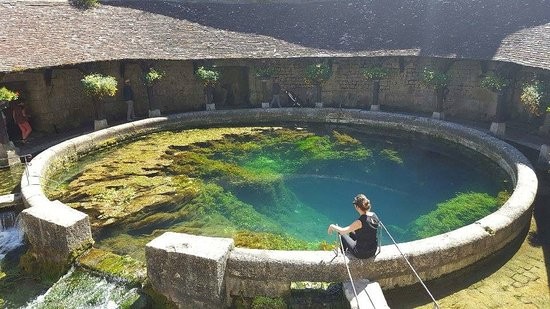 |
| Photo: TripAdvisor |
The Fosse Dionne is a karst spring, in Tonnerre in the Yonne department of France. It is fed by the rainwater on the surrounding hills as well by at least one subterranean river. The Fosse Dionne is remarkable because of its average daily outflow of 311 litres per second. It is likely that the spring was the reason for the siting of the village. An elaborate lavoir was built around the spring of the 18th century.
Nestled in the quaint tonnerre district of France, the ancient wellspring known as the Fosse Dionne is a deep natural water source that has been built up into a haunting grotto since Roman times.
Located near to a small hotel that bears its name, the “Dionne Pit” is a lovely historic spot. The gurgling sinkhole was used in Roman times to supply clean water to a nearby palace, and became the focal point around which much of the ancient settlement developed. During the 18th century, a stone rim was built around the pool, with a spout at one end to allow the water to run off. A squat amphitheater was built behind the pool, and it was used as a public laundry. These constructions remain to this day, a bit of crumbling masonry and moss, adding to the spring’s natural beauty.
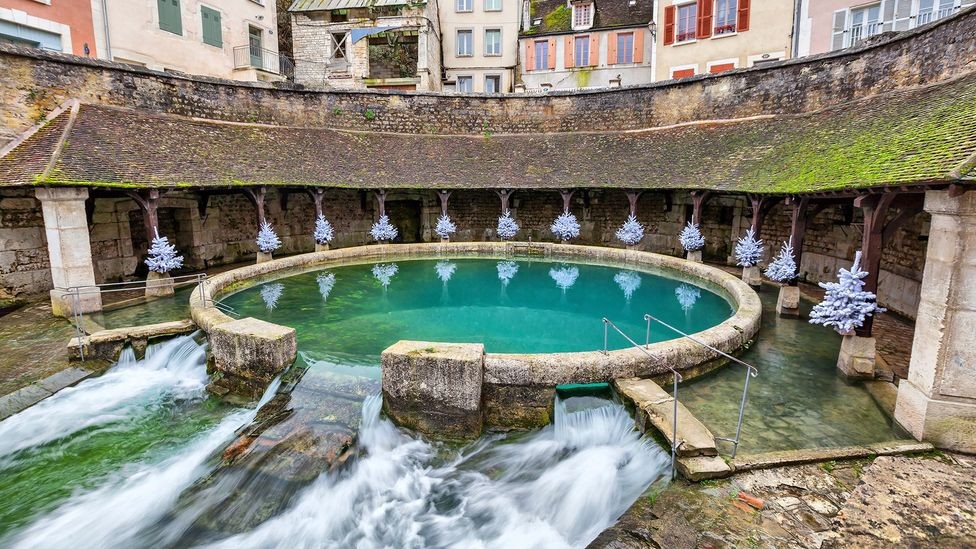 |
| Photo: BBC |
The history of Fosse Dionne
In the Gallo-Roman period, the Fosse Dionne was used to supply water to the Oppidum of Tornodurum built on the Vieux Châteaux plateau overlooking the commune. The modern settlement of Tonnerre is built around the spring.
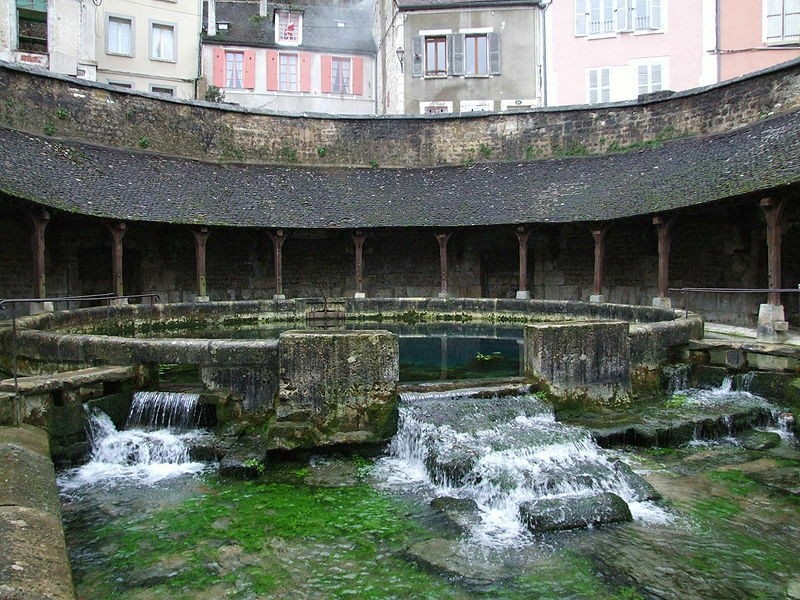 |
| Fosse Dionne CRISTOPHE.FINOT ON WIKIPEDIA (CREATIVE COMMONS) |
The oldest reference to the spring is in an account of the life and miracles of St Jean de Rèome written in 659. Two other "lives" were written later, in the 8th and 9th centuries. The legend is recounted in Description de la ville de Tonnerre by Pierre Petitjehan, a state notary, written in 1592. The library's edition is an 18th-century copy, made by Joseph Duclon of Courtive in 1773. Petitjehan drew on good sources to write his "Description of the old modern and new city of Tonnerre, antiques of the hospital churches and abbeys and estans, etc.". He not only consults the old archives of the hospital and the city, and those of the ancient abbey of Saint-Michel, but he also records the testimony of elders. Finally, it extracts from the great chronicles (notably that of Gregory of Tours) all the references to the ancient commune of Tonnerre. The legend recounts that the saint dug out and killed a basilisk that inhabited the spring.
In 1758, Louis d'Éon, father of the Chevalier d'Éon. converted the spring into a lavoir, building a 14-metre wide basin. The washerwomen were protected from the weather by a roof in the form of a “half rotunda” supported by a framework abutting a rubble wall. To avoid pollution, a wall separates the spring from the circular trough used for washing. Fireplaces around the lavoir made it possible to produce the ash needed for cleaning. The structure has been classified as a monument historique since 1920.
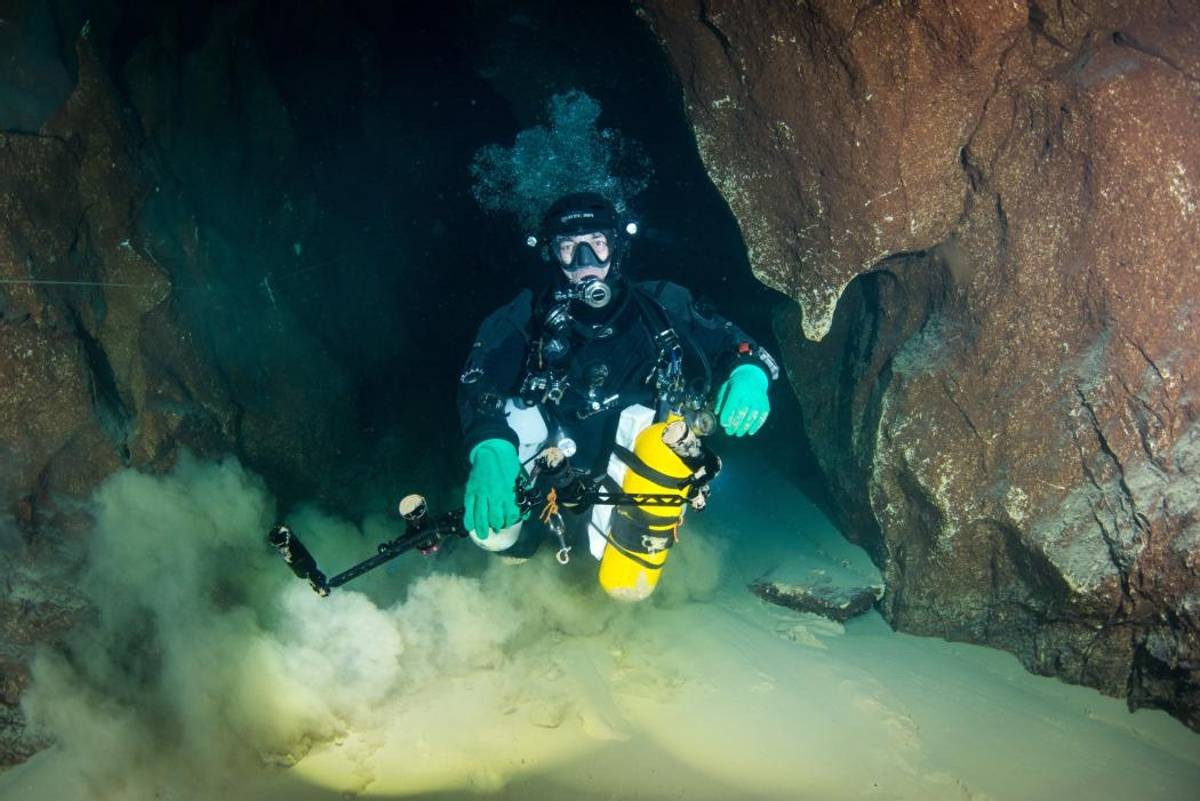 |
| Photo: Journaltime |
The great mystery of Fosse Dionne
The great mystery of the Fosse Dionne spring is where its water actually comes from. There's certainly a lot of water coursing out of it, and like other karst springs, the water emerges from a network of subterranean limestone caves. However, no diver has ever been able to find its source, and many of those who have tried haven't come back alive.
Many believed that the well of the spring was even home to a serpent, which was a way to explain the significant depth of the well itself. With its circular walls once being a place for washing, stories such as these quickly gained speed and became part folklore, part truth, in the 1700s. For those who didn't believe in the myth of the serpent that patrolled the bottom of the well, awaiting curious humans, there was another explanation: The well had to have been a portal into another world, according to The Travel.
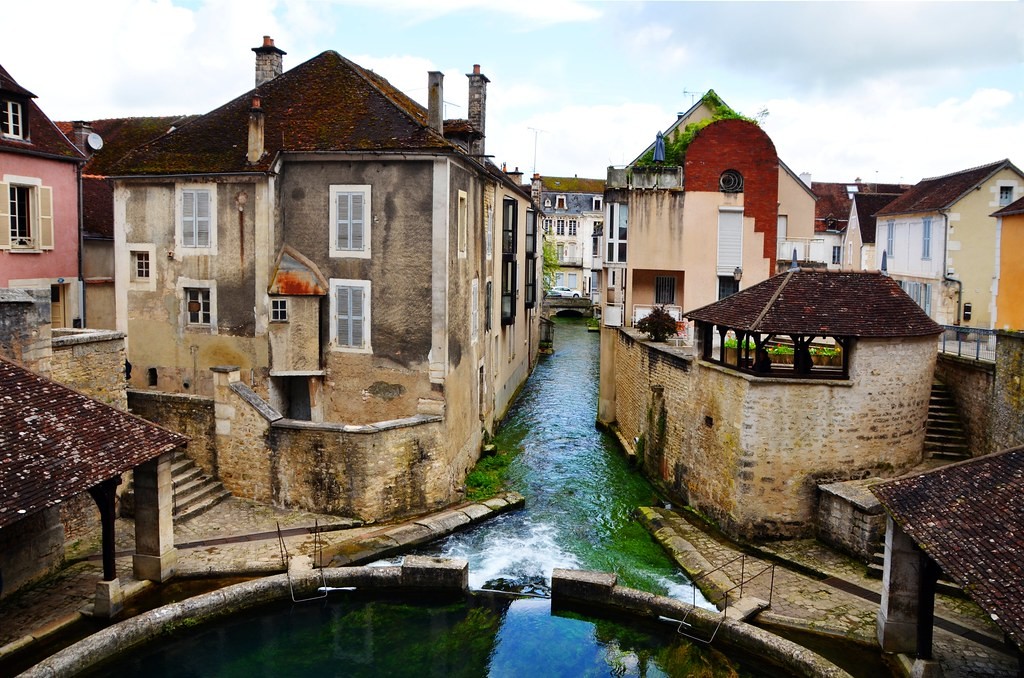 |
| Photo: Flickr |
Only with the explicit permission of Tonnarre’s town mayor have divers attempted to get to the very bottom and, by extension, the very source of this well's water. Expeditions didn't even begin until 1974, as it was deemed too dangerous for divers to attempt the depths prior to that. Underneath the well, deep under the earth, lie chasms and tunnels that make diving into the well extremely difficult. This harrowing dive, similar to the process of cave-diving, is something that could only be attempted by the most experienced underwater divers, capable of maneuvering around the tight space between chambers.
Tragically, the two divers who first descended into the well lost their lives to it. They never made it to the spring's source, nor were they able to map out a route to it. For decades, the well went without any human interference at its depths until 1996, when another diver was hired to attempt the same harrowing journey. Sadly, he, too, lost his life in the depths of this spring. With so many divers never making it back to the surface, it was deemed far too much of a risk for any others to attempt the journey, until recently - in October of 2019, another diver was hired to do the job for the third time.
 | The Secrets Of Colossi of Memnon – The Unearthly “Singing” Statues With an impressive height of up to 18m, the two giant stone statues are also impressed by the mysterious "singing" sound in Egypt. |
 | Visit Chatuchak Weekend Market – One Of The Largest Markets In Asia Stepping into one of the oldest and largest markets in Asia, Chatuchak - the charming and colorful market of Bangkok, gives the tourists the greatest ... |
 | The Most Perfect Winter Weekend Getaways in the U.S November is the holiday season, with many fun and holidays around the United States, and families spend time with each other celebrating Thanksgiving, or gathering ... |
Recommended
 World
World
India reports 9 Pakistani Aircraft Destroyed In Operation Sindoor Strikes
 World
World
Thailand Positions Itself As a Global Wellness Destination
 World
World
Indonesia Accelerates Procedures to Join OECD
 World
World
South Korea elects Lee Jae-myung president
Popular article
 World
World
22nd Shangri-La Dialogue: Japan, Philippines boost defence cooperation
 World
World
Pakistan NCRC report explores emerging child rights issues
 World
World
"India has right to defend herself against terror," says German Foreign Minister, endorses Op Sindoor
 World
World







